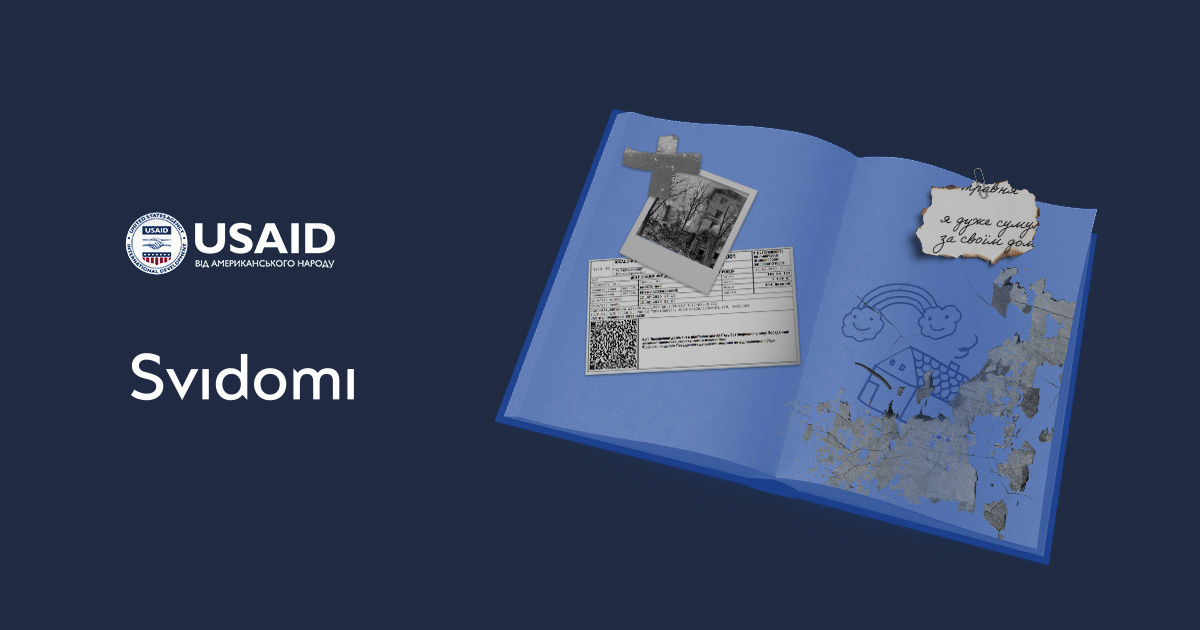The lack of reflection during a full-scale war

The first memes, songs, and illustrations about the full-scale invasion began to appear a few days after February 24th. However, could it be called a reflection, or was it an instant reaction? Is there a difference between them?
In the material, read about the concept of reflection, its forms, and whether it is possible to reflect during stressful situations.
Definition
Reflection is the awareness and understanding of the lived experience and the mark it leaves. Psychologist, psychotherapist, and head of the "Sens" psychological studio Mariana Franko says that when a person reflects, they supposedly establish a chain between the past, present, and future in the context of what a specific experience means now and what it can mean for the future. According to her, reflection can make the events we lived through into a good experience.
Methods and manifestations of reflection
The main way to reflect is to ask yourself: what do I feel, what does it mean to me, why am I acting this way, does it match my goals and values, and what will happen if I try to act differently?
Another option is to reflect in conversation. The method of psychoanalysis is largely based on reflection — when we understand that we are developing, we are dynamic, and previously acquired experience can be processed and become supportive instead of hindering. Besides, the interlocutor can be not only a therapist but also a person who will be ready to understand the experience and with whom it can be discussed and reflected without judgment.
Psychiatrist and cognitive-behavioral psychotherapist Sofiia Vlokh says that everything we see can be forms of emotional reaction: memes, jokes, folklore, music, and movies. Even when we just observe but feel that it touches us — we also think and feel this way and find it funny or sad — these are also forms of reflection.
"Very often, there is a conflict between the desire to push some terrible event out of consciousness and the desire to talk about it. The desire to talk is the embodiment of reflection. In social life, reflection is a kind of awareness of a person about who they are to others and what their position in the group is. In a state of war, this affiliation is also a form of reaction," says Vlokh.
Psychotherapist and military psychologist Oleksii Karachynskyi believes that the reactions that exist in society now and are manifested, for instance, in art or music, are not reflection itself but its result: you did some thinking and decided to write a song. In his opinion, reflection can also be manifested in internal conclusions, for example: “I left the country — I constantly feel guilty.” You can ask yourself about the feeling of leaving — probably this would be your answer that you should back.
Is it possible to reflect on the events of the war while it is still ongoing?
Mariana Franko explains that reflection always needs time. A stressful situation requires active actions at the biological level, therefore, a reaction to trauma "fight — freeze — run" is manifested to overcome the obstacle with all the possible resources, knowledge, and experience. You can reflect during the war when you are in safe, stable conditions and don't have to deal with a traumatic situation. When people try to reflect during active combat actions while close to the frontlines, on the contrary, they can contribute to the formation of psychological trauma. It's like an open wound: first, you need to provide medical help and then figure out what happened and why.
Oleksii Karachynskyi says that a person who engages in reflection during stressful situations is walking into a swamp and does not find the answers they require. For example, a full-scale war begins, the mind says it is better to leave for a safe place. A person who will engage only in reflection will not take a step forward or backward. It is possible to reflect after leaving.
What threatens the lack of reflection?
"If we don't reflect, then we don't understand our emotions, behavior, and why we react in this way and not in another way. It affects relationships with other people and life in general. If we take into account the context of war, living and mourning the experience helps not to traumatize yourself. The way of reflection and reaction is like the opposite of a traumatic experience," explains Sofiia Vlokh.
When asked whether post-traumatic stress disorder (PTSD) can occur due to the lack of reflection, Mariana Franko said that PTSD does not appear due to the lack of reflection. PTSD is acute stress that could not be survived and ended because the necessary social and psychological, and sometimes medical assistance was not provided in time. Reflection is possible after this help has already been provided.


